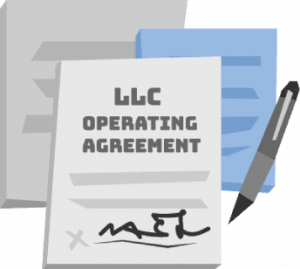How To Start An LLC In Minnesota
When you start an LLC in Minnesota, you get flexible management, pass-through taxation, and personal asset protection. It costs $135 to form your LLC. The good news is that your annual report is free, meaning the state doesn’t require an upkeep fee to keep your LLC in good standing.
To start an LLC in Minnesota, you’ll need to file Articles of Organization with the Minnesota Secretary of State and pay the accompanying filing fee. Want to hire someone to form your LLC for you? We’ve got you covered. Northwest can form your LLC for just $39 + state fees. Rather deal with the paperwork yourself? No problem. This comprehensive guide goes over every stage of starting an LLC in Minnesota.

1. Name Your LLC
To register your LLC in Minnesota, you’ll first decide on a business name that follows the legal requirements listed in MN Statute § 322C.0108. To put it briefly, your LLC name must:
- Contain the words Limited Liability Company or the abbreviation LLC
- Not already be taken by another Minnesota business
- Not contain the words Corporation, Incorporated, or an abbreviation of those two words
- Not give the impression that your business offers services it isn’t permitted to offer
Tip: Have a business name in mind? You can check to see if it’s available before you submit your Articles of Organization. You can also reserve your business name if it’s available but you’re not ready to file yet. Name reservations last one year and cost $35 ($55 online).
File for a DBA
Doing business as refers to the practice of operating under a name other than your legal LLC name. This means getting a Minnesota DBA. This includes if you’d like to drop the LLC from your name for marketing purposes or on official documents. The fee to file a DBA in Minnesota is $50 online (or hire us to do it for you).

2. Register a Domain Name
After choosing your LLC’s name, a good next step is locking down a domain name for your business website. Your domain name (URL) is the web address to your site.
A professional domain name should be easy to remember—and ideally, match or complement your business name. When you register your domain name early, you’re more likely to get a name that meets those standards.
You’ll need to claim a business domain name through a registrar. When you hire Northwest to form your LLC, domain registry is one of many in-house services we provide, so you also get a domain name free for a year, plus your own customizable business website secured with SSL protection, and up to ten email business addresses connected to that domain.

3. File Your Articles of Organization
Once you’re ready to make your business official, file the Minnesota Articles of Organization with the Minnesota Secretary of State. This paperwork is called the Articles of Organization. If you file by mail or in person, it is $135. If you file online, it’s $155.
All of the information you put on your Minnesota Articles of Organization will become part of the public record. Here is what’s included:
Your business name must be legally compliant with all Minnesota sta statutes. Most importantly, your name can’t be the same as another business registered with the Minnesota Secretary of State, and it has to include Limited Liability Company or LLC.
This must be an actual street address (not a P.O. Box). The registered office is where your company’s important legal mail will be sent to your registered agent.
Per Minnesota law, your registered office must be where your registered agent is located. Your registered agent is the person who accepts legal mail on behalf of your company. This means if you’re served a lawsuit, your registered agent is the person who will accept that service of process.
This is the person who will be be completing your Articles of Organization. Filing yourself? That’s you. Hiring us to do it for you? That’s us.
This is where the Secretary of State will send official notices.
If there’s an issue with your filing, the state will contact the person whose name and phone number you list here.
If you want, you can answer some or all of these survey questions about your business.
How Do You File Minnesota Articles of Organization?
You can file the Articles of Organization online, by mail, or in person.
Mail or in person:
Minnesota Secretary of State—Business Services
Retirement Systems of Minnesota Building
60 Empire Drive, Suite 100
St Paul, MN 55103
Online:
Minnesota Secretary of State

4. Adopt an Operating Agreement
An operating agreement is basically a how-to manual for your business. Operating agreements are not legally required in Minnesota, but most businesses choose to adopt one anyway.
Operating agreements tell other people how to run the business if you’re not there to manage a situation, and hold the business accountable to itself. You can put anything from membership interest to dissolving the business in here.
Tip: Since operating agreements are legally binding documents, they can be confusing to start. That’s why we had our attorneys draft a Minnesota operating agreement template. It’s free to use!

5. Get an EIN
An Employer Identification Number (EIN) is an unique number given to businesses by the IRS for tax purposes. It’s a lot like a social security number. Technically, you don’t have to get an EIN. But without one, you can’t hire employees, have more than one member, change tax status, or open a business bank account. Plus, you’ll have to use your personal social security number on things like vendor documents if you don’t have an EIN.
Tip: You can get an EIN directly with the IRS, or hire us to take care of it for you.

6. Get a Business Bank Account
All LLCs have liability protection, meaning that their business is by default a separate entity than its owners. However, that liability protection can be weakened if the business and the owners mix finances. This can happen if your business doesn’t have a separate bank account apart from your personal finances.
To open a business bank account, you’ll need your LLC’s Articles of Organization, operating agreement, EIN, and an LLC Resolution to Open a Bank Account.

7. File Minnesota Annual Renewal
All LLCs operating in Minnesota are required to file an annual renewal by December 31 each year. The annual renewal is a report that updates the state on your business’s contact and ownership information. The good news? Unlike most states, the Minnesota Annual Renewal is completely free to file!
Tip: If you’re worried about remembering your annual renewal, you can hire us to file for you!
Ready to Start an LLC in Minnesota?








